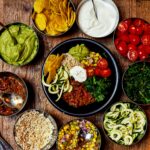
Veggie phenomenon. One in every ten Portuguese follows a plant-based diet
In 2023, Portugal recorded a slight decrease in the number of vegans, vegetarians and flexitarians compared to the previous study carried out in 2021, and
We didn't find any happenings mapped to your criteria.
Try the traditional search to find articles not yet mapped with RUA.
We didn't find any happenings mapped to your criteria.
Try the traditional search to find articles not yet mapped with RUA.
We didn't find any happenings mapped to your criteria.
Try the traditional search to find articles not yet mapped with RUA.
We didn't find any happenings mapped to your criteria.
Try the traditional search to find articles not yet mapped with RUA.
Similar to yeast, Solein is a powder produced from microorganisms with the help of electricity and carbon dioxide (CO2) that can be used in practically any food.
Growing food from air and electricity is the promise of Factory 01, a pilot plant of Finnish food technology startup Solar Foods, which opened last month in Vantaa, near Helsinki, to produce a new planet-friendly protein: Solein.
Although it is not grown in the traditional way, Solein is a completely natural protein that combines the nutrients of animal and plant proteins and contains all the essential amino acids, just like soy protein.
Solein is similar to yeast and can replace protein in practically any food, including meat alternatives, dairy products, different snacks and drinks, noodles and pasta, breads and spreads. This protein disappears in food and does not alter the taste of familiar, everyday food products.
According to the website, the protein is produced “from natural unicellular organisms, which are cultivated in a fermentation process. Water is split into hydrogen and oxygen using renewable electricity [do sol]. The cells are fed with CO2, hydrogen and mineral nutrients. These microorganisms are then able to produce amino acids, carbohydrates, lipids (fats) and vitamins (…). When the time comes to harvest the Solein, the excess water is removed and it is finally dried into a [amarelado] fine protein powder, without any plants or animals being harmed in the process.” The result is “an abundant harvest born out of nothing”.
“Factory 01 allows us to increase Solein production to 160 tons per year. Depending on the amount of the new protein needed per serving, this translates into 5-8 million meals fed with Solein. This is still a drop in the ocean in global terms, but it allows us to introduce a whole new food to the world – and more than just a select few will be able to taste it.” explains Pasi Vainikka, co-founder and CEO of Solar Foods.
This initiative follows several years of experiments on a laboratory scale. Now, with the new factory, the company is proving how easily scalable it is.
“Factory 01 doesn’t need to wait for good weather for Solein to grow (…). Protein can be grown anywhere, as long as there is energy: with solar energy in the Sahara, with wind-generated electricity in the Arctic, with any sustainable energy available in megacities. Without the demands of traditional agriculture, Solein can be grown even outdoors,” says Vainikka.
Vainikka explained to The Guardian that the claim that proteins are made from nothing “is never more than 95% true”, since 5% of the mixture in the fermentation vessel is a solution containing other minerals needed by cells, such as iron, magnesium, calcium and phosphorus.
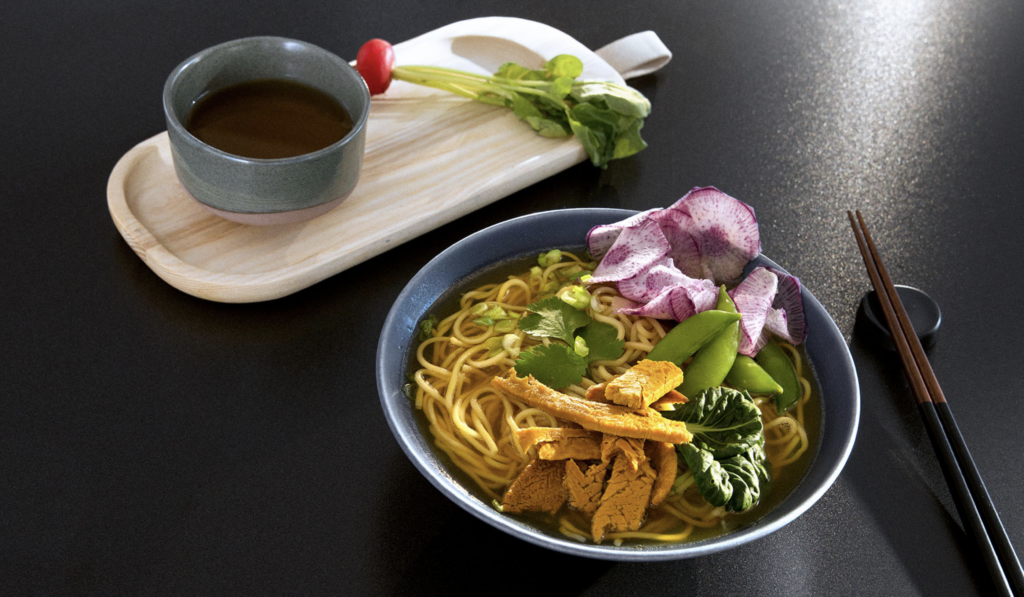
According to a press release,the cultivation of one kilogram of Solein requires approximately 1% of the water and 5% of the arable land that the cultivation of an equivalent amount of vegetable protein would require, and creates only a fifth of the CO2 emissions in the process, thus making it possible to reduce the environmental impact of agriculture.
“As we manage to ease the pressures on farmland, it can go back to being wild and become a climate sink again,” says Vainikka, who advocates the “coexistence of the old and the new”, with artisanal and high-quality farms alongside cellular agriculture that can provide cheap, bulk food.
Solein has received a new regulatory approval for food products in Singapore, where several limited edition food products and test marketing have already been launched. The company is seeking authorizations in other markets around the world and hopes to introduce its products in the US next fall, followed by the UK and the European Union by the end of 2025.
Factory 01 is the first IPCEI (Important Project of Common European Interest) hydrogen project to be completed by the European Commission. The factory will also serve as Solar Foods’ R&D and future product development center, and will provide valuable data for the next stage: Factory 02.
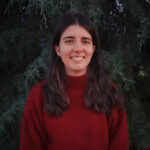

In 2023, Portugal recorded a slight decrease in the number of vegans, vegetarians and flexitarians compared to the previous study carried out in 2021, and
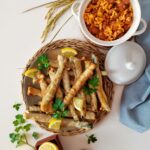
The month of April is going to be special. The vegan community has come together to bring you recipes that will help you eat less
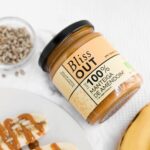
We know that, just like us, there are hundreds of other projects wanting to do more for the planet. We went to them to find
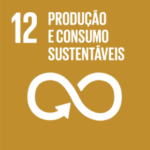
This article promotes an action that encourages the reduction of waste generation through prevention, reduction, recycling, and reuse.
➡️ To discover more businesses that are aligned with Sustainable Development Goal 12 “Sustainable Production and Consumption” click here.
➡️ For news, tips and interviews about this topic, click here.
➡️ Want to know more about the 17 United Nations Sustainable Development Goals? Click here
Esta publicação também está disponível em:
![]() Português (Portuguese (Portugal))
Português (Portuguese (Portugal))

